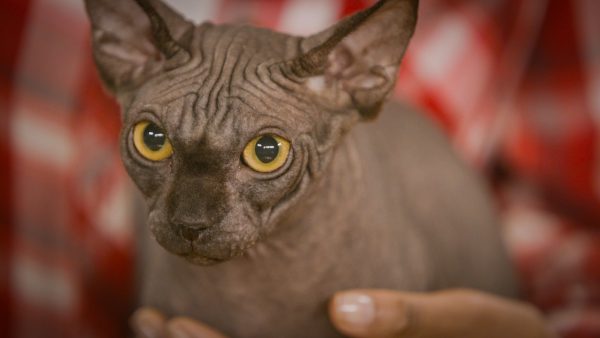Mutation Definition
A mutation is a change in an organism's genetic material (DNA). For example, brittle bone disease is caused by a genetic mutation.
View Lesson on Genes & Mutations
Become a member to get full access to our entire library of learning videos, reading material, quiz games, simple DIY activities & more.
Become a member to get full access to our entire library of learning videos, quiz games, & more.
Plans & Pricingto watch this full video.

Access All Videos
and Lessons, No Limits.
Access All Videos

No credit card required,
takes 7 sec to signup.
No card required

Ready-to-go lessons
that save you time.
Ready-to-go lessons
If you are on a school computer or network, ask your tech person to whitelist these URLs:
*.wistia.com, fast.wistia.com, fast.wistia.net, embedwistia-a.akamaihd.net
Sometimes a simple refresh solves this issue. If you need further help, contact us.
Genes & Mutations
Fun Facts
- A mouse that inherits a gene with a mutation may not grow any hair.
- Sun exposure without sunscreen can cause a mutation leading to skin cancer.
- Mutations are not always harmful, they are just changes in an organism's genetic material.
Why Do We Need To Know About Mutation
Learning about mutations helps us know how they help solve crimes and fight off diseases. In forensic science, which is like detective work for science, tiny changes in DNA help identify who may have committed a crime. This is because everyone’s DNA has small differences, and these can point to a specific person.
In medicine, especially when dealing with viruses, knowing about these tiny changes is key to making medicines and stopping diseases from spreading. Most of the time, mutations don’t do much, but sometimes they can make a virus more dangerous. By studying these changes, scientists can figure out how to fight the virus. Studying mutations has very important uses in real life, from keeping us safe from criminals to fighting diseases.
Frequently Asked Questions
Check out the Full Lesson on Genes & Mutations
In this lesson, we learn that:
- Living things have traits based on their genes.
- Genes code for proteins that have specific structures and functions.
- Mutations in genes can be beneficial, harmful or have no effect.
Related Topics
- Absorbency Definition
- Adaptation Definition
- Amplitude Definition
- Batteries Definition
- Biodiversity Definition
- Chemical Change Definition
- Chemistry Definition
- Chromosome Definition
- Continental Drift Definition
- DNA Definition
- Definition Of Non-living Things
- Definition Of Science
- Earth’s Axis Definition
- Ecosphere Definition
- Electric Field Definition
- Food Chain Definition
- Geologic Time Scale Definition
- Gravity Definition
- Greenhouse Effect Definition
- Hydrosphere Definition
- Landform Definition
- Landslide Definition
- Light Reflection Definition
- Magma Definition
- Marsupial Definition
- Material Definition
- Mineral Definition
- Mitochondria Definition
- Mutation Definition
- Natural Selection Definition
- Nervous System Definition
- Opaque Definition
- Opposable Thumb Definition
- Paleontologist Definition
- Pollution Definition
- Properties Of Matter Definition
- Property Definition
- Proton Definition
- Rain Definition
- Reversible Change Definition
- Seeing Definition
- Simple Machines Definition
- Soil Definition
- Sun Definition
- Synthetic Materials Definition
- Tissue Definition
- Translucent Definition
- Wavelength Definition
Start a Free Trial Today. Get a $5 Amazon Gift Card!
Teachers! Start a free trial & we'll send your gift card within 1 day. Only cards left. Try it now.
Select Grade
Select Subject
This email is associated with a Science Kit subscription. Kit subscriptions are managed on this separate page: Manage Subscription

-
Download InvoiceScience & Math$/yr
-
Download InvoiceScience Only$/yr

access all lessons
• No credit card required •
"My students loved the videos. I started the video subscription in May and used them as a review before the state test, which I know contributed to 100% of my class passing the state test."
Rhonda Fox 4th Grade Teacher, Ocala, Florida
• No credit card required •
"My students loved the videos. I started the video subscription in May and used them as a review before the state test, which I know contributed to 100% of my class passing the state test."
Rhonda Fox 4th Grade Teacher, Ocala, Florida
• No credit card required •
Already a member? Sign In
* no credit card required *

* no credit card required *
* no credit card required *


no credit card required
Skip, I will use a 3 day free trial
Enjoy your free 30 days trial
-
Unlimited access to our full library
of videos & lessons for grades K-5. -
You won’t be billed unless you keep your
account open past your 14-day free trial. -
You can cancel anytime in 1 click on the
manage account page or by emailing us.
-
Unlimited access to our full library of videos & lessons for grades K-5.
-
You won't be billed unless you keep your account open past 14 days.
-
You can cancel anytime in 1-click on the manage account page.
Cancel anytime in 1-click on the manage account page before the trial ends and you won't be charged.
Otherwise you will pay just $10 CAD/month for the service as long as your account is open.
Cancel anytime on the manage account page in 1-click and you won't be charged.
Otherwise you will pay $10 CAD/month for the service as long as your account is open.
We just sent you a confirmation email. Enjoy!
DoneWe use cookies to make your experience with this site better. By using this site you agree to our use of cookies. Click "Decline" to delete and block any non-essential cookies for this site on this specific property, device, and browser. Please read our privacy policy for more information on the cookies we use.Learn More
We use cookies to improve your experience. By using this site, you agree to our use of cookies. Click "Decline" to block non-essential cookies. See our privacy policy for details.Learn More



























































































































